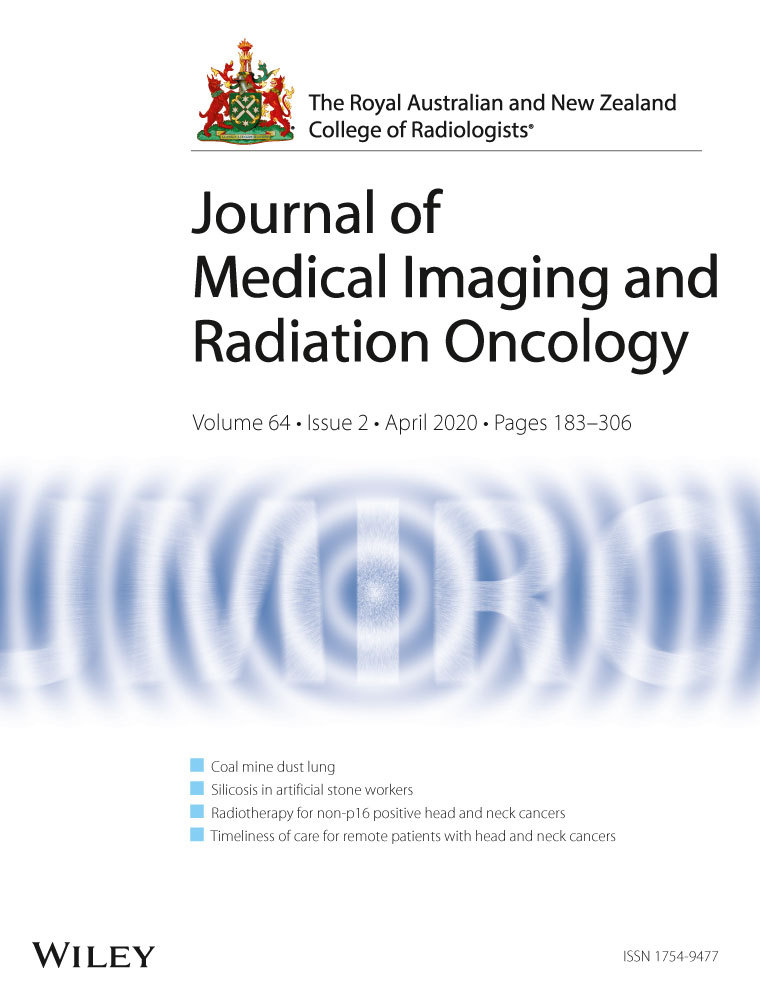Feedback survey on the Royal Australian and New Zealand College of Radiologists Faculty of Radiation Oncology trainee research requirement
Abstract
Introduction
The Royal Australian and New Zealand College of Radiologists Faculty of Radiation Oncology (FRO) requires trainees to complete a research project prior to the exit (phase II) examinations. We report results of a survey of current FRO trainees and Fellows graduating since 2013, regarding their experience of the overall requirement, supervision, barriers to project completion and subsequent publication.
Methods
A 32-question online survey was sent via email to 285 FRO members in July 2019. Responses were anonymous.
Results
The overall response rate was 32% (trainees 41%, Fellows 21%); 70% of respondents were trainees. About three-quarters of projects were retrospective reviews (64%) or surveys (13%), 94% met College requirements at first submission, 71% were published, and 81% were presented at a scientific meeting. Most assistance was provided by the project supervisor (57%), statistician (47%), another consultant (36%) or the Director of Training (28%). Finding time amongst other clinical/curriculum commitments, rotating to another training site and availability of a suitable supervisor were notable obstacles. Over half (52%) of respondents were satisfied/very satisfied with the process overall and 20% dissatisfied/very dissatisfied; 19% and 30%, respectively, thought requiring acceptance for peer review and completion prior to the phase II examination unreasonable/very unreasonable. Four per cent reported being less likely to be involved in future research as a result of this experience.
Conclusion
While the majority of respondents perceive the FRO research requirements as reasonable, a significant minority are not satisfied with aspects of the programme. Amendment of the pre-phase II stipulation may be worthy of consideration.




